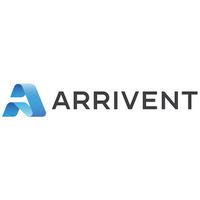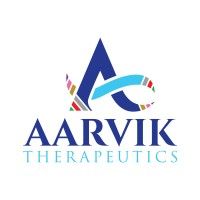预约演示
更新于:2025-05-07

Arrivent BioPharma, Inc.
更新于:2025-05-07
概览
标签
肿瘤
呼吸系统疾病
ADC
小分子化药
关联
4
项与 Arrivent BioPharma, Inc. 相关的药物作用机制 EGFR T790M抑制剂 [+3] |
在研机构 |
原研机构 |
非在研适应症 |
最高研发阶段批准上市 |
首次获批国家/地区 中国 |
首次获批日期2021-03-03 |
靶点- |
作用机制- |
在研适应症 |
非在研适应症- |
最高研发阶段临床前 |
首次获批国家/地区- |
首次获批日期- |
靶点- |
作用机制- |
在研适应症 |
非在研适应症- |
最高研发阶段药物发现 |
首次获批国家/地区- |
首次获批日期- |
2
项与 Arrivent BioPharma, Inc. 相关的临床试验NCT05607550
A Global, Phase 3, Randomized, Multicenter, Open-Label Study to Investigate the Efficacy and Safety of Furmonertinib Compared to Platinum-Based Chemotherapy as First-Line Treatment for Patients With Locally Advanced or Metastatic Non-Small Cell Lung Cancer (NSCLC) With Epidermal Growth Factor Receptor (EGFR) Exon 20 Insertion Mutations (FURVENT)
Global, Phase 3, randomized, multicenter, open-label study evaluating the efficacy and safety of furmonertinib (firmonertinib) at 2 dose levels (160 mg once daily [QD] and 240 mg QD) compared to platinum-based chemotherapy in previously untreated patients with locally advanced or metastatic non-squamous Non-Small Cell Lung Cancer (NSCLC) with Epidermal Growth Factor Receptor (EGFR) exon 20 insertion mutations. A target of approximately 375 patients will be randomized in a 1:1:1 ratio to treatment with furmonertinib 240 mg QD, furmonertinib 160 mg QD, or platinum-based chemotherapy.
开始日期2023-06-01 |
申办/合作机构 |
NCT05364073
A Phase 1b Dose Escalation and Dose Expansion Study Evaluating the Safety, Pharmacokinetics, and Antitumor Activity of Furmonertinib in Patients With Advanced or Metastatic Non-Small Cell Lung Cancer (NSCLC) With Activating Epidermal Growth Factor Receptor (EGFR) or Human Epidermal Growth Factor Receptor 2 (HER2) Mutations
This is a Phase 1b, open-label, multi-center, dose-escalation and dose expansion study designed to evaluate the safety, pharmacokinetics (PK), and preliminary antitumor activity of furmonertinib in patients with advanced or metastatic non-small cell lung cancer (NSCLC) with activating, including uncommon, Epidermal Growth Factor Receptor (EGFR) or Human Epidermal Growth Factor Receptor 2 (HER2) mutations. Patients will be enrolled into one of 2 stages: Stage 1 (Dose Escalation and Backfill Cohorts) and Stage 2 (Dose Expansion).
开始日期2022-06-30 |
申办/合作机构 |
100 项与 Arrivent BioPharma, Inc. 相关的临床结果
登录后查看更多信息
0 项与 Arrivent BioPharma, Inc. 相关的专利(医药)
登录后查看更多信息
3
项与 Arrivent BioPharma, Inc. 相关的文献(医药)2024-04-05·Cancer Research
Abstract CT280: FURVENT, Phase 3 trial testing furmonertinib vs chemotherapy as first-line treatment for advanced NSCLC with EGFR exon 20 insertions (FURMO-004)
作者: Kowanetz, Marcin ; Yang, James ; Cho, Byoung Chul ; Lam, Morgan ; Passaro, Antonio ; Planchard, David ; Garon, Edward ; Hsu, Jerry ; Wang, Shirley ; Spira, Alexander ; Huang, Jack ; Felip, Enriqueta ; Zhou, Caicun ; Leighl, Natasha B. ; Goto, Koichi ; Le, John ; Jiang, Yong ; Popat, Sanjay ; Johnson, Melissa Lynne ; Lu, Xiaoqian
2024-04-05·Cancer Research
Abstract CT152: FURTHER: A global study to evaluate furmonertinib in patients with EGFR mutant NSCLC including uncommon EGFR mutations
作者: Yu, Yan ; Gadgeel, Shirish ; Huang, Jack ; Cheng, Ying ; Spira, Alexander ; Hayashi, Hidetoshi ; Kitazono, Satoru ; Jiang, Yong ; Hsu, Jerry Y. ; Gao, Bo ; Yoh, Kiyotaka ; Kowanetz, Marcin ; Zhao, Yanqiu ; Wang, Jie ; Riess, Jonathan ; Baio, Nichole ; Leung, William ; Forster, Martin ; Le, Xiuning ; Juan-Vidal, Oscar ; Wang, Shirley ; Planchard, David
2024-03-22·Cancer Research
Abstract 1964: Furmonertinib is a brain-penetrant EGFR TKI highly active in uncommon EGFR mutations, including PACC and exon 20 insertions
作者: Mounir, Zineb ; Lutzker, Stuart ; He, Junqin ; Luo, Huibing ; Musib, Luna ; Hsu, Jerry Y. ; Le, Xiuning ; Li, Qing ; Heymach, John V. ; Nilsson, Monique B. ; Kowanetz, Marcin ; Yu, Xiaoxing
292
项与 Arrivent BioPharma, Inc. 相关的新闻(医药)2025-05-04
·赛柏蓝
编者按:本文来自动脉网,作者牟磊;赛柏蓝授权转载,编辑yuki01“退货率”40%?2024年,中国创新药BD交易市场格外火热。有研究报告显示,2024年我国药企共完成94笔license-out交易,总交易金额高达519亿美元,同比增长26%;其中首付款41亿美元,同比上涨16%。图1:2018-2024年中国药企licence-out交易数量及首付款(数据来源:医药魔方)进入2025年,这一势头仍在延续。据悉,刚刚过去的第一季度已出现超20笔涉中国药企全球授权的交易,包括罗氏豪掷超10亿美元淘金信达生物,乐普生物就一款临床前ADC与ArriVent达成一笔超12亿美元的重磅合作等。在专利悬崖压力下,海外大药企当前对中国创新药空前热情,并计划进一步“扫货”。这意味着,BD交易有望在今年再创新高。一片热闹之中,不少国内药企已经尝到了甜头。比如映恩生物成立仅六年,license-out已卖出超60亿美元,推动其在近期成功登陆港交所,并以113%的涨幅创下18A企业历史最高纪录;还有百利天恒,2024年实现扭亏为盈,净利大幅增长575%来到37.08亿元,这离不开一笔史诗级BD——2023年年底,BMS就BL-B01D1与百利天恒达成了总交易额84亿美元的天价协议,光首付款就高达8亿美元。但与此同时,BD失败的消息同时也在传来。据不完全统计,截至2025年4月20日,在2020年已完成的62起license-out交易中,目前有25起已明确终止合作,“退货率”为40%。2021年和2022年的“退货率”当前也达到20%左右,且有不少都是在今年宣布“分手”,比如诺诚健华的奥布替尼以及石药集团的ADC项目EO-3021等。经历过去两年疯狂的BD浪潮之后,国产创新药也来到了“清算”阶段。图2:2020-2024年中国药企licence-out“退货”率(截至2025.04)02“分手”,很难体面进入2025年,国产创新药在BD层面的纠纷就一直不断。2月,诺和诺德指控亨利医药涉嫌欺诈;3月,三叶草收到全球疫苗免疫联盟(GAVI)书面通知要求单方面终止预购协议并退还预付款;此外,石药与Elevation Oncology及诺诚健华与渤健等也都因为“分手”出现了摩擦。有资深投资人表示,“毕竟是几亿甚至是高达几十亿美元的合作,所以一旦出现问题,想要和平解决并非易事。”到底是因为什么让双方最终走到“分手”这一步?首先是后续临床数据欠佳。以最近终止合作的石药与Elevation为例,2022年7月,Elevation以近12亿美元总价从石药引进Claudin18.2 ADC项目EO-3021/SYSA1801,但不到三年后,其美国临床一期数据显示ORR仅22.2%,与初期47.1%的数据差距较大,无法再向下推进。图3:全球CLDN18.2 ADC研发管线(数据截至2024.05)其次是管线竞争格局千变万化。2024年8月,默沙东宣布退回科伦博泰SKB315的权益,虽然该靶点备受期待,但截至2024年4月,全球已有4款Claudin18.2 ADC进入临床Ⅲ期,目前还处于Ⅱ期的SKB315显然不具备优势。有资深投资人表示,“对于一些同质化竞争激烈、临床进度滞后的靶点,海外药企宁可放弃首付款,也会果断选择终止合作。”此外还有买方自身战略调整。以Coherus为例,2024年1月其选择“退货”君实生物JS006,而这其中的导火索源于一次收购,2023年9月,Coherus收购了SurfaceOncology,在重新清点管线后,为将资源分配给管线中最有前途或最具竞争力的候选产品,Coherus认为,终止与君实生物在TIGIT项目上的合作符合利益最大化原则。事实上,在当前市场寒冬下,买方战略调整只会更加直接、迅速。最后是政策层面变化。以首个闯关FDA的国产PD-1信迪利单抗为例,这原本是一笔跨时代的BD交易,但在2022年12月还是无奈按下了暂停键,礼来将权利退回给信达生物。这其中的关键因素在于FDA拒绝信迪利单抗治疗非鳞状非小细胞肺癌的在美上市申请,认为该申请仅基于在中国进行的Ⅲ期临床,不足以在美国获得批准。但舆论却站在了另一边,因为信迪利单抗在美国获批之后,将比现有的同类产品价格降低40%。除此之外,行业风口的转移以及同质化竞争引发的内卷旋涡等,也会促使BD合作的泡沫破裂。不难发现,虽然“退货”的理由各有不同,但其实都可以归纳为一个关键因素,即生存焦虑。03“退货”后失去的不仅仅是钱据SRS ACQUIOM统计,2023年我国创新药里程碑达成率仅为22%,并且阶段越往后,达成率越低。图4:生物制药领域2023年年中到期的各研发阶段里程碑事件达成情况(图源:研发客)也就是说,绝大多数国产创新药最后只能拿到首付款,而首付款恰恰是最低的一笔收入。我国创新药License out长期遵循“高总金额、低首付”的叙事逻辑,所以首付款往往只占到总交易额的2%~5%左右,以石药集团Claudin 18.2 ADC为例,其与Elevation的合作首付款仅2700万美元,后续的11.68亿美元里程碑付款需要跨越三期临床试验到商业化阶段才能获得。对此,某药企负责人谈道,“作为‘甲方’的MNC,始终掌控着交易的核心话语权。再加上国内药企都渴望与MNC合作来换取现金流,所以在交易的过程中更容易妥协,因而造成首付款金额普遍较低。但这对于MNC来说,则是利好,因为当项目推进受阻时,其只需要付出极小的代价。”对国内药企而言,合作终止后,突然停止的管线以及市场信心崩盘等,同样是亟待收拾的残局。2023年9月,I-Mab发布公告,全面终止与艾伯维就CD47单抗在研药物——来佐利单抗(lemzoparlimab)等产品的合作协议。作为一家尚未有产品实现商业化的创新药企业,I-Mab的现金流严重依赖BD收入,但随着艾伯维退出,其只有通过砍管线来勉强度日。到2024年7月,I-Mab创新管线仅剩3条;2025年1月,其又宣布暂停开发CD73单抗Uliledlimab(尤莱利单抗)。某资深投资人谈道,“对一家‘硬实力’还不够强的biotech来说,一款产品在需要大量烧钱的阶段时,合作被终止就等于提前‘死亡’。一是突然没了现金流来源;二是其市场信心会严重受挫,后续只有在临床试验中披露非常好的数据时,才能够再度找到‘买方’,但这种可能性微乎其微。”究其原因,还是在于买卖双方风险承担不对等,于是,“NewCo”模式开始脱颖而出。据统计,2024年中国创新药企通过NewCo模式达成的交易金额已突破600亿元,较2023年增长54%。进入2025年,NewCo模式仍然保持高增长态势,光是在今年1月,就已经有5家公司通过NewCo模式成立。 图5:NewCo模式与License-out模式差异对比与传统license-out相比,NewCo模式最明显的差异在于买卖双方更深度绑定。因为它完全脱离主体,需要重新成立一家新的公司,并由买卖双方共同运营,这与license-out将所有决定权都交由MNC相比显然更加合理,其不仅可以规避风险,同时也可以将利益最大化和长期化。国内药企显然也意识到了这一点,以康诺亚为例,过去半年,其已经快速完成了3笔NewCo交易,潜在总金额11.4亿美元,占其总营收的比例高达95%。而能有如此表现,这与其战略选择不无关系:通过快速临床推进建立数据壁垒,以灵活授权交易获取生存资源,在风险可控的前提下探索国际化和平台化转型。04保持理性切忌将BD当做“救命稻草”不少行业人士推测,经过这两年汹涌的海外BD浪潮之后,未来几年国产创新药“退货”事件会愈发增多。这并非危言耸听,在欧美成熟市场,创新药交易的变换更迭屡见不鲜。据Cotellis数据库,FDA批准的新药中,80%的新药都经过一次或一次以上的交易。这也就是说,“被退货”其实才是大概率事件,这与创新药“九死一生”的定律十分契合。有资深投资人认为,“BD本身就像在‘赌石’,尤其是当前越来越多的交易开始聚焦在早期甚至超早期管线,这一特性会体现地更为明显。毕竟早期分子面临的变数非常多,一旦有任何风吹草动都有可能立马终止,即便是像辉瑞这类头部MNC,其临床成功率也不到5%。”在一片热闹之中,国内企业更要理性看待BD的本质。图6:中国创新药融资总金额与License-out交易总金额对比(数据来源:医药魔方)一方面,在退出与生存压力并重的市场环境之下,BD的确可以解燃眉之急,甚至是帮助一部分国内药企逆天改命。华泰研究报告显示,2024年1-11月我国创新药BD的首付款高达62.73亿美元,比企业直接融资金额的39.77亿美元多出近一倍,BD显然已经成为国产创新药最重要的现金流来源。但另一方面,能够被BD并不意味着完美结局,因为其不仅要面临被抄底的境遇,同时还要承受与MNC交易带来的巨大对赌压力。事实上,在无比考验长期主义的创新药领域,比起license out刚开始市场反应的急不可待的欣喜,随后的困难与挑战反倒更值得警惕,尤其是在“关税战”愈演愈烈的当下,海外交易的不确定性会更强。BD应该是一种权衡利弊后的选择,而不是“病急乱投医”的尝试。下一步,国产创新药想要成功出海,一定需要新东西证明自己,比如领先全球的研发进度,或对标全球更优的临床数据,再或大幅领先的全球销售额等。这实际上就是创新药亘古不变的市场逻辑,即过硬的临床数据以及巨大的商业化前景。只有这样,即使面临“退货”,也有再度出售的机会和底气。END内容沟通:郑瑶(13810174402)
引进/卖出抗体药物偶联物疫苗并购
2025-05-01
2025年5月1日,中国苏州,康宁杰瑞生物制药(股票代码:9966.HK)与石药集团(股票代码:1093.HK)共同宣布,HER2双特异性抗体KN026联合化疗二线及以上治疗HER2阳性胃癌(包括胃-食管结合部腺癌)的Ⅱ/Ⅲ期临床研究(研究编号:KN026-001)已完成首次期中分析,经独立数据监察委员会(IDMC)评估,达到预先设定的无进展生存期(PFS)的主要终点,具有统计学显著性和临床意义。KN026-001是一项随机、多中心、Ⅱ/Ⅲ期临床研究,旨在评估KN026联合化疗用于一线治疗失败的HER2阳性晚期、不可切除或转移性胃癌(包括胃-食管结合部腺癌)患者的疗效。该研究的第二阶段为随机、双盲、安慰剂对照的Ⅲ期研究,入组既往至少一线标准治疗失败的HER2阳性胃癌(包括胃-食管结合部腺癌)患者,按照1:1随机接受KN026联合化疗或安慰剂联合化疗治疗,主要终点为经独立评审委员会(IRC)评估的PFS和总生存期(OS)。期中分析结果显示,与现有标准治疗相比,KN026联合化疗显著改善了患者的PFS,降低了疾病进展/死亡的风险,并具有OS获益趋势。该研究的详细数据将在近期国际学术会议上公布。 关于KN026 KN026是康宁杰瑞采用具有自主知识产权Fc异二聚体平台技术(CRIB)开发的HER2双特异性抗体,可同时结合HER2的两个非重叠表位,阻断HER2信号。相比于曲妥珠单抗和帕妥珠单抗联用,KN026针对HER2阳性肿瘤细胞有更强的抑制杀伤;另外KN026对于曲妥珠单抗抗性细胞株也有抑制作用。多项不同阶段临床研究表明,在经过包括抗HER2在内的多线治疗后进展的HER2阳性乳腺癌和胃癌患者中,KN026仍然表现出显著的抗肿瘤活性。目前针对二线及以上HER2阳性胃癌/胃食管结合部癌、一线HER2阳性乳腺癌、HER2阳性乳腺癌新辅助等适应症的多项注册临床研究正在进行中。KN026联合化疗用于一线标准治疗失败的HER2阳性胃癌(包括胃-食管结合部腺癌)获国家药品监督管理局(NMPA)药品审评中心(CDE)授予突破性疗法认定。2021年8月,康宁杰瑞与石药集团全资附属公司上海津曼特生物科技有限公司(以下简称“津曼特生物”)就KN026签订了在中国内地的开发及商业化授权协议。津曼特生物获得KN026在中国内地(不包括香港、澳门及台湾地区)在乳腺癌、胃癌适应症上的排他性开发与独占性商业化许可权。康宁杰瑞是一家以创新驱动、聚焦肿瘤治疗领域的生物制药公司,依托自主研发的单域抗体、双特异性抗体、糖基定点偶联、连接子载荷、双载荷抗体偶联及大分子药物高浓度皮下制剂等核心技术平台,构建具有差异化和国际竞争力的产品矩阵,覆盖抗体偶联药物(ADC)、双抗及单域抗体等前沿领域。公司已有1个产品获批上市(恩沃利单抗注射液KN035,商品名:恩维达®,全球首个皮下注射PD-(L)1抑制剂),在肿瘤治疗的便捷性和可及性上做出了重大突破。此外,公司有多个双抗和双抗ADC项目在临床研究阶段,并且快速推进以双抗ADC和双载荷ADC为主的临床前管线。公司已与石药集团、ArriVent、Glenmark等合作方达成多项针对产品或技术平台的战略合作。“康达病患,瑞济万家”。康宁杰瑞致力于解决未满足的临床需求,不断努力,开发高效、安全、具有全球竞争优势的抗肿瘤药物,惠及患者。欢迎访问公司网站:www.alphamabonc.com前瞻性陈述本新闻稿包含与我们未来业务、财务表现和涉及康宁杰瑞未来事件相关的声明,这些声明或构成前瞻性陈述。此类陈述包括预测和估计及关联的基本假设、有关潜在可能性的计划和期望的陈述,以及有关未来活动、运营及表现的陈述。这些陈述或可用诸如"预期"、"期待"、"预计"、"打算"、"计划"、"相信"、"寻求"、"估计"、"将"或类似含义的词语来标识。此类陈述基于康宁杰瑞管理和业务运营的当前某些假设,且受包括但不限于政治、经济、法律环境和商业环境等多种风险和不确定性的影响,康宁杰瑞的实际经营结果、表现或业绩可能较相关前瞻性陈述中明确或暗含的描述呈现(正面或负面)变化。除适用法律的要求外,无论出于新信息、未来事件还是其他原因,康宁杰瑞均无义务公开更新任何前瞻性陈述,且不为无法实现该等前瞻性陈述而承担责任。医药信息声明康宁杰瑞不推荐任何已获批或正在研发的药品/适应症临床使用,本文所包含的任何信息不应被看作是任何药物的申请、推广或广告。
临床2期突破性疗法临床3期申请上市
2025-04-30
·药智网
资本寒冬席卷创新药行业,部分药企股价腰斩、市值缩水。然而,艾力斯却走出了一条独立行情——2025年4月30日收盘其股价最高价为88.15元,较2022年4月29日的最低价14.16元暴涨523%,市值突破390亿元,成为创新药板块当之无愧的“涨幅王”。翻开2024年财报,艾力斯的业绩同样亮眼:实现营业收入35.58亿元,同比激增76.29%;尽管研发投入以53.81%的增速持续增加至4.8亿元,但依旧不影响企业净利润的大幅增加,以121.97%的增幅实现净利润14.3亿元。2025年一季度乘胜追击,实现营收10.98亿元,同比增长47.86%。“十年磨一剑,出鞘必锋芒”,曾经在创新药赛道上低调潜行的艾力斯,如今正以狂飙的股价和炸裂的业绩,成为资本市场瞩目的“逆袭黑马”。这家成立于2004年、曾被视为“慢热型”的药企,凭借什么在资本寒冬期实现逆势崛起?<01>单品突围艾力斯的崛起,始于一款明星产品——第三代EGFR-TKI甲磺酸伏美替尼片。当EGFR-TKI赛道被奥希替尼等巨头产品占据主导时,艾力斯选择了“精准狙击”而非正面硬刚。约25%EGFR突变NSCLC患者在初诊时发现具有脑部转移,在3年的随访中该比例可增加至50%。伏美替尼在脑转移治疗方面展现出了突出的疗效和安全性数据,其治疗CNS转移NSCLC的数据显示:CNS ORR达到84.6%、CNS DCR达到100%、CNS PFS达19.3个月。基于此伏美替尼被纳入《肺癌脑转移中国治疗指南(2021年版)》推荐。这一“脑转移克星”的差异化定位,使得伏美替尼迅速在临床端建立起不可替代的优势。凭借差异化优势,伏美替尼片在肺癌治疗领域实现快速放量。截至2024年末,其累计销售额已突破65亿元。2021年3月,伏美替尼二线治疗EGFR T790M突变阳性晚期NSCLC适应症通过优先审评通道在国内获批。同年,伏美替尼降价79%进入国家医保目录,上市首年即实现销售额2.36亿元,助力艾力斯成功扭亏为盈。2022年,关键3期FURLONG研究数据惊艳亮相:对比一代TKI吉非替尼,伏美替尼一线治疗EGFR敏感突变晚期NSCLC的中位无进展生存期(PFS)达20.8个月,较对照组延长9.7个月,且降低疾病进展或死亡风险达56%。基于此,其一线适应症于2022年6月获批上市。医保覆盖叠加临床优势推动销售持续高增长。2022年伏美替尼首次实行医保价格,实现销售额7.9亿元,同比增长235%。2023年伏美替尼一线治疗NSCLC首次纳入医保,同年实现销售19.78亿元,同比增长150%。2024年在医保加持下,伏美替尼维持高速增长,实现销售收入35.06亿元。甲磺酸伏美替尼片二线治疗适应症、一线治疗适应症均被续约纳入2024年版国家医保报销范围,结合差异化市场策略,预计其市场销售额将进一步增加。不同于行业热衷的“管线广度扩张”,艾力斯选择“单产品纵深开发”策略,聚焦将伏美替尼打造成覆盖肺癌全病程的“超级单品”。作为目前唯一针对全部四种EGFR突变均有效的三代EGFR-TKI,伏美替尼的临床开发正沿着“全病程覆盖”路径纵深推进:从辅助治疗适应症、20外显子插入突变的一线及二线治疗适应症、PACC突变的一线治疗适应症,到EGFR敏感突变伴脑转移患者的精准干预、EGFR非经典突变的辅助治疗等,均已进入注册临床阶段。在国际化布局上,公司与ArriVent的合作不仅为伏美替尼带来潜在的里程碑付款,更通过海外注册临床的推进打开增量空间。图片来源:太平洋证券中国EGFR-TKI药物市场近年来呈现高速扩容态势,2017至2022年间以34.8%的年复合增长率,从31亿元人民币增长至138亿元人民币。弗若斯特沙利文数据显示,这一市场规模预计在2027年和2033年分别达到205亿元与283亿元。在市场结构中,根据弗若斯特沙利文的数据,第三代EGFR-TKI自2022年起占据主导地位,以73%的份额成为市场主力。预计2033年其市场占比将增至93.6%,成为EGFR突变肺癌治疗的主流选择。作为第三代EGFR-TKI的核心品种,伏美替尼凭借适应症的纵深布局和差异化优势,其未来市场竞争中的份额有望进一步扩大。<02>商业化效率闭环在非小细胞肺癌中,EGFR突变是最常见驱动因素,此外还存在ROS1、RET、KRAS、NTR等多种突变类型。艾力斯以核心产品伏美替尼为基石,同步引进外部优质管线,构建覆盖多突变类型的肺癌治疗产品矩阵。普拉替尼是中国首个上市的RET抑制剂(2021年3月获批),2023年11月,艾力斯获其中国大陆独家商业化推广权,依托肺癌领域渠道优势加速市场渗透。中国每年新发RET突变肿瘤患者约7万人,其中NSCLC RET融合患者1万-2万人,RET融合一线治疗NSCLC的市场空间广阔。目前国内仅2款RET抑制剂上市,另一款为信达/礼来的塞普替尼(2022年10月获批)。加科思的戈来雷塞作为潜在“同类最佳”分子,用于KRAS G12C突变二线NSCLC的新药上市申请(NDA)已于2024年5月获优先审评,有望2025年上半年获批,成为第三个国产KRAS G12C抑制剂。艾力斯与加科思的合作将适应症拓展至胰腺癌、结直肠癌等适应症,通过联合用药挖掘更大治疗潜力。针对第三代EGFR-TKI的耐药问题,艾力斯引进和誉生物医药的第四代EGFR-TKI(ABK3376),构建“三代耐药后接四代”的全程治疗方案。另外,艾力斯自主研发的注射用AST2169脂质体已于2024年3月获得临床1期试验批准,其主要针对KRAS G12D突变晚期实体瘤患者。图片来源:艾力斯2024年年报面对伏美替尼不断增长的市场需求,艾力斯加速推进建设新增年产1.5亿片甲磺酸伏美替尼片固体制剂生产线项目。作为创新药商业化的关键支撑,供应链端的前瞻性布局不仅实现产能的储备,更通过制造能力的自主掌控,构建起创新药商业化的双重护城河。在营销体系建设上,艾力斯的营销团队规模逐步扩大,2021年团队人数为457人,2023年增至900人,2024年超1200人。目前团队覆盖全国31个省市,业务触及约4800家医院,形成了全国性的销售网络。<03>长期主义实践2004年,杜锦豪与郭建辉在上海周浦医学园区创立艾力斯。这家药企从心血管药物研发遇挫到在肿瘤赛道实现逆袭,从濒临绝境到市值超380亿元,展现了中国创新药企业的发展轨迹。2012年,联合创始人郭建辉博士离世,艾力斯迎来关键转折点。当时,公司唯一的商业化产品阿利沙坦酯刚获批上市,却因战略调整需要转让给信立泰。这场价值超十亿元的交易的背后,是杜锦豪决定将资源集中投入肿瘤靶向药研发的策略。放弃现有的现金流,转而投入耗时十年、耗资数亿的肿瘤药研发,这一选择在当时看来近乎疯狂。中国每年新增肺癌患者超80万,而靶向治疗领域主要由外资药企主导,这为国产创新药提供了发展机会。杜锦豪将公司研发方向锁定在非小细胞肺癌领域,任命罗会兵博士组建团队,启动伏美替尼的研发。伏美替尼的研发过程曲折。早期推进的二代EGFR-TKI艾力替尼已进入2/3期临床,因三代药物展现出更优疗效,艾力斯根据技术趋势做出调整,果断暂停该项目。2018年,伏美替尼获得临床试验许可,此时距离立项已过去八年。2021年伏美替尼上市时,国内三代EGFR-TKI市场已被奥希替尼占据。艾力斯采取“以价换量”的策略,这使伏美替尼在2024年销售额突破35亿元,在市场中占据一席之地。资本市场用真金白银为艾力斯的蜕变投票。2022年4月29日,其股价跌至历史低点14.16元,市值不足百亿;2025年4月30日,股价最高触及88.15元,三年涨幅超5倍。站在2025年的节点回望,艾力斯的逆袭之路恰似一部中国创新药的成长史诗。它用21年时间诠释:在医药这个最需要耐心的行业,真正的远见是敢于在黑暗中坚持,真正的胜利是把技术突破转化为患者可及的生命希望。近三年艾力斯股价走势图片来源:百度股市通<04>结语艾力斯医药的商业模式在展现韧性的同时,也存在一些值得关注的挑战。其核心产品伏美替尼贡献了超98%的营收,单一产品依赖风险客观存在。尽管这款第三代EGFR-TKI在2024年续约医保后销量持续增长,但是当前国内已有7款同类药物获批,市场竞争加剧。尤其同源康医药的TY-9591在头对头试验中证实对脑转移患者的疗效显著优于奥希替尼,已提交上市申请,这可能对伏美替尼在脑转移细分领域的优势形成冲击。另外,公司引进的普拉替尼面临商业化挑战,戈来雷塞等新药管线短期内难以担纲主力。虽然伏美替尼暂时不会进入集采模式,但是药品价格下行趋势,可能导致公司销售收入及净利润不及预期。不过整体上,艾力斯在行业低谷期实现逆势增长的实践,为创新药企提供了宝贵的启示:当行业陷入靶点内卷和融资焦虑时,艾力斯在特定细分领域打造不可替代的临床优势,展现出真正的逆周期能力。参考资料:1、艾力斯官网、财报等2、太平洋证券3、《艾力斯:抗肿瘤药新贵》,裕智资本声明:本内容仅用作医药行业信息传播,为作者独立观点,不代表药智网立场。如需转载,请务必注明文章作者和来源。对本文有异议或投诉,请联系maxuelian@yaozh.com。责任编辑 | 史蒂文合作、投稿、转载开白 | 马老师 18323856316(同微信) 阅读原文,是受欢迎的文章哦
财报优先审批临床3期上市批准申请上市
100 项与 Arrivent BioPharma, Inc. 相关的药物交易
登录后查看更多信息
100 项与 Arrivent BioPharma, Inc. 相关的转化医学
登录后查看更多信息
组织架构
使用我们的机构树数据加速您的研究。
登录
或

管线布局
2026年03月01日管线快照
管线布局中药物为当前组织机构及其子机构作为药物机构进行统计,早期临床1期并入临床1期,临床1/2期并入临床2期,临床2/3期并入临床3期
药物发现
2
1
临床前
临床3期
1
登录后查看更多信息
当前项目
| 药物(靶点) | 适应症 | 全球最高研发状态 |
|---|---|---|
甲磺酸伏美替尼 ( EGFR L858R x EGFR T790M x EGFR exon 20 x EGFR-Ex19del ) | EGFR 20号外显子插入突变非小细胞肺癌 更多 | 临床3期 |
ARR-002 | 实体瘤 更多 | 临床前 |
ARR-217 | 实体瘤 更多 | 药物发现 |
ARR-003 | 实体瘤 更多 | 药物发现 |
登录后查看更多信息
药物交易
使用我们的药物交易数据加速您的研究。
登录
或

转化医学
使用我们的转化医学数据加速您的研究。
登录
或

营收
使用 Synapse 探索超过 36 万个组织的财务状况。
登录
或

科研基金(NIH)
访问超过 200 万项资助和基金信息,以提升您的研究之旅。
登录
或

投资
深入了解从初创企业到成熟企业的最新公司投资动态。
登录
或

融资
发掘融资趋势以验证和推进您的投资机会。
登录
或

生物医药百科问答
全新生物医药AI Agent 覆盖科研全链路,让突破性发现快人一步
立即开始免费试用!
智慧芽新药情报库是智慧芽专为生命科学人士构建的基于AI的创新药情报平台,助您全方位提升您的研发与决策效率。
立即开始数据试用!
智慧芽新药库数据也通过智慧芽数据服务平台,以API或者数据包形式对外开放,助您更加充分利用智慧芽新药情报信息。
生物序列数据库
生物药研发创新
免费使用
化学结构数据库
小分子化药研发创新
免费使用

